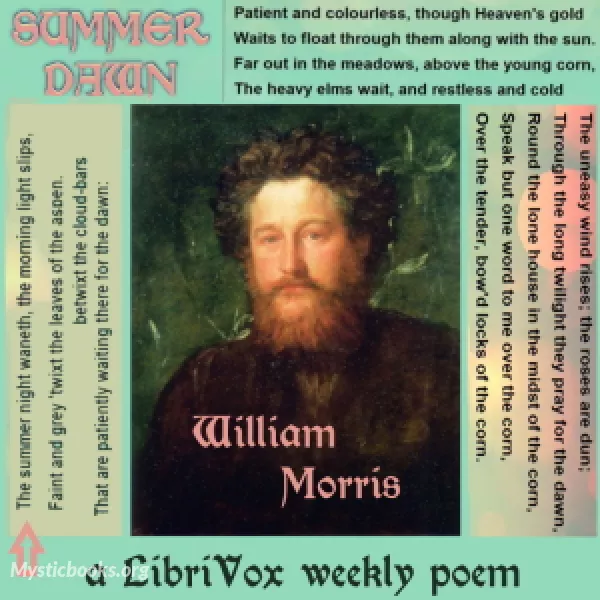
Summer Dawn
'Summer Dawn' Summary
"Summer Dawn" is a poem written by the famous English poet and artist, William Morris. The poem is an ode to the beauty and wonder of the natural world, capturing the essence of a tranquil summer morning.
The poem describes the dawn of a new day, with its soft light and gentle breeze, and the natural world coming to life with the sounds of birds and the buzzing of bees. Morris paints a vivid picture of the landscape, with its trees and flowers, and the gentle flow of a nearby stream. He celebrates the simple pleasures of life and the joy that can be found in the beauty of nature.
Morris was a leading figure in the Arts and Crafts movement, which sought to revive traditional craftsmanship and bring beauty and artistry back into everyday life. His poetry was known for its romantic sensibility, lyrical beauty, and celebration of the natural world. "Summer Dawn" is a prime example of his work, and a testament to his ability to capture the essence of a moment and evoke a sense of wonder and awe in his readers.
The poem's themes of peace, tranquility, and the joy of simple pleasures continue to resonate with readers today, making it a timeless classic of English literature. Its beautiful language and vivid imagery make it a favorite among poetry lovers and nature enthusiasts alike.
In conclusion, "Summer Dawn" is a beautiful and inspiring poem that celebrates the beauty and wonder of the natural world. William Morris' lyrical language and romantic sensibility make this poem a timeless classic that continues to inspire readers today. For anyone who loves poetry or the beauty of nature, "Summer Dawn" is a must-read.
Book Details
Authors
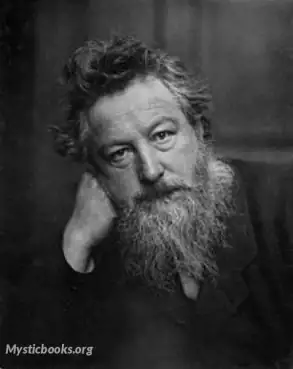
William Morris
England
William Morris was a British textile designer, poet, artist, novelist, translator and socialist activist associated with the British Arts and Crafts Movement. He was a major contributor to t...
Books by William MorrisDownload eBooks
Unfortunately, no ebooks exist for this book, yet...
Listen/Download Audiobook
- Select Speed
Related books
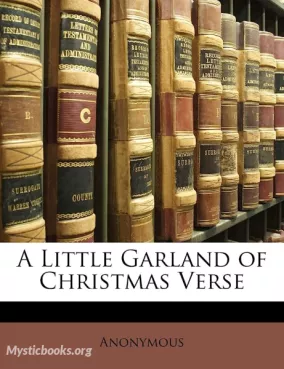
A Little Garland of Christmas Verse by Various
This is a delightful anthology that brings together a treasure trove of poetic gems, each one celebrating the magic and beauty of Christmas. This time...
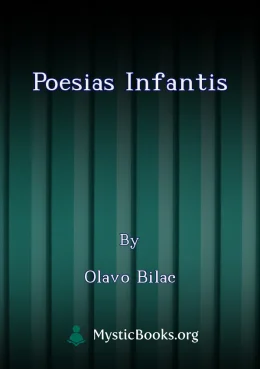
Poesias Infantis by Olavo Bilac
Esta é uma coletânea de poemas infantis do escritor brasileiro Olavo Bilac. Os poemas são lidos em português por uma criança brasileira e abordam tema...

Sight by Archibald Lampman
It explores the themes of nature, spirituality, and the human experience. The book was first published in 1895 and has since become a timeless classic...

The Giaour by George Gordon, Lord Byron
The Giaour is a poem by Lord Byron first published in 1813 by John Murray and printed by Thomas Davison. It was the first in the series of Byron's Ori...
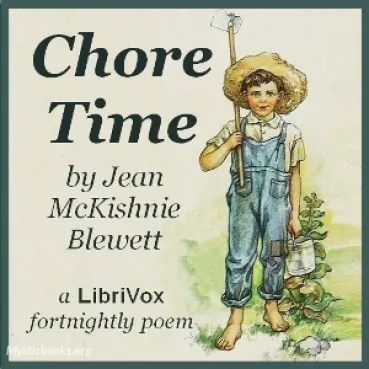
Chore Time by Jean McKishnie Blewett
In Jean McKishnie Blewett's captivating poem, "Chore Time," the mundane task of chores transforms into an exploration of childhood memories, family dy...
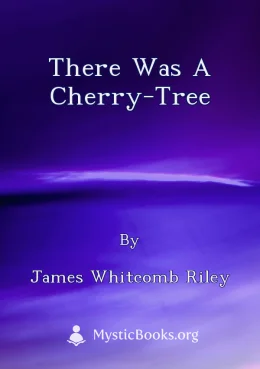
There Was a Cherry-Tree by James Whitcomb Riley
There Was a Cherry Tree is a poem by James Whitcomb Riley, published in 1883. It is a nostalgic look back at childhood, specifically a memory of a che...
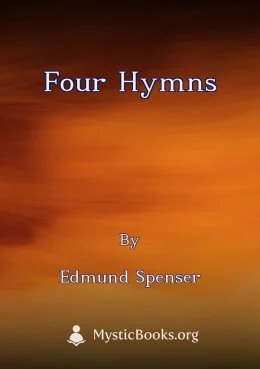
Four Hymns by Edmund Spenser
This volume contains four hymns by Edmund Spenser, a renowned Elizabethan poet. The hymns explore the Platonic concept of love and beauty, and their r...

The World’s Story Volume III: Egypt, Africa and Arabia by Eva March Tappan
A journey through the ancient civilizations of Egypt, Africa, and Arabia awaits you in this captivating book. The World's Story Volume III: Egypt, A...
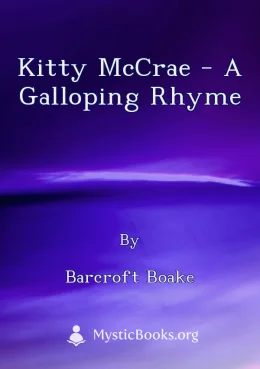
Kitty McCrae - A Galloping Rhyme by Barcroft Boake
This is a narrative poem, written in rhyme, that tells the story of a young girl, Kitty McCrae, who lives in the Australian bush and is passionate abo...
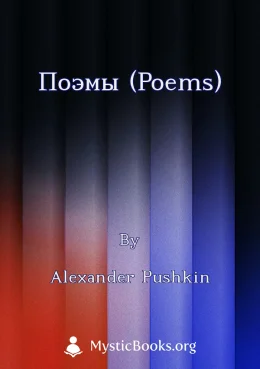
Поэмы (Poems) by Alexander Pushkin
Алекса́ндр Серге́евич Пу́шкин (1799 - 1837) — русский поэт , драматург и прозаик . Александр Сергеевич Пушкин имеет репутацию великого или величайшего...
Reviews for Summer Dawn
No reviews posted or approved, yet...